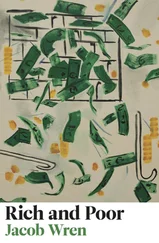Lauren and Karen are stuck firmly in the middle of this together, a marriage of convenience, though as luck has it, she quite likes Karen and the feeling is mutual. Karen is two years younger than Lauren but acts a decade older. She evinces weariness with the world, vocally dismissing whatever annoys her: the foibles of the bosses, the fawnings of their underlings. Lauren is aware that she’s two years too old to be in the middle of this totem pole — too old for that “Associate”—and that the same weariness, coming from her, feels sometimes like bitterness.
She works at keeping that bitterness at bay. She never wanted this particular turn in her career, so she can’t begrudge not having climbed higher. It would be dishonest. She’s still planning, still plotting, still keeping her options open, though to what end she’s not entirely sure, not yet anyway. She has options but she also has insurance, and the occasional Balenciaga bag.
“This is good, but this isn’t a meal.” Karen is quite expert with her chopsticks. A new restaurant, an all-dumpling menu, and she’s not wrong: The food is fine but unsatisfying.
Lauren knows it’s small of her but she doesn’t like going to a restaurant alone. She supposes this is a measure of her failure as a human being, a certain kind of human being, an evolved human being. How can you claim comfort with yourself if you can’t sit and read The New Yorker while dunking something into a tiny plastic cup of inky soy sauce? You can’t. Maybe she can’t. But don’t we all have those memories of hesitating, plastic tray in hands, while scanning the cafeteria for a friendly face, and aren’t friendly faces hard to come by when you’re eleven? She’s always needed a friend. At eleven, at the new school, she was panicked. Who wouldn’t be? The teachers didn’t make her stand up in front of the class and say something about herself, nothing like that, teachers don’t actually do that, do they? But eleven is old enough to understand a lot more than some might think, and Lauren understood, eyeing the queue of taxis and town cars that morning, that things were going to be different.
Her mother had held her hand, then it was her mother who let go of it, her mother who understood she needed to not risk coloring her classmates’ perceptions of her daughter. There were other parents in evidence, fathers and mothers who similarly sensed that they should play it cool for the good of their child’s social capital. But there were unattended children as well: They’d gone to this school for six years together, this was not a first day, merely a return. Lauren took her place among them: They lined up, as they’d been taught to for half their lives, and disappeared inside the school’s actually-ivied walls and Lauren said nothing, not even to the chubby girl who pointed out they had the same model backpack. She would need to make friends, but she would need to be discriminating. She saw the desperation on that girl’s face and was not going to let it pull her into its orbit.
It is not clear to either Lauren or Sarah why they spoke. They can’t recall who approached whom. But they met, almost right away; on that, there’s consensus. Sarah nice enough, but still as fierce as her compatriots; no one is more fierce than an eleven-year-old girl. Even Lauren, eager, nervous, was defended — her need guarded, and because it was hidden, it was vanquished by lunchtime. They were friends by noon. That first moment, conversation, exchange lost to time, but twenty-one years later here they are still.
Sarah introduced her — introduced her! Explained who was who and everything, though certainly there couldn’t have been hands shaken? — to the other girls she deemed worth knowing. At her old school, Lauren had known the other kids her whole life. You learned who people were quickly, learned them alphabetically. Three weeks later, she was going to Sarah’s house after school. By fall break, she was with her at their house in Connecticut — a whole other house, meant only for the weekends and days off, something she’d never considered. Her mother had made her send a thank-you card, and she’d been mortified when she went back to Sarah’s house and the thank-you card in question was pinned to the corkboard by the kitchen telephone.
Lauren’s mother used to lament Sarah’s being an only child, feeling that explained some of the girls’ incredible, instantaneous closeness. Of course, she wasn’t truly an only child, but Bella never came to know Lulu well enough to learn any of this. Lauren didn’t see Sarah’s condition as solitude. She was envious: no big brother, burping in her face then laughing hysterically, none of that rank, powerful smell of teenage boys, the one that she understood much later has to do with the discovery of masturbation. At any rate, Sarah was never alone, so she couldn’t have been lonely. She was always in a group, always a group of girls. Sarah had authority, she had presence. She was a leader, born to it. She had a kind of stardom, one that had nothing to do with who her parents were or how much money they had — everyone’s parents were someone, except Lauren’s, and they all had money, except for Lauren’s — but it was something that came naturally, like the way her hair kinked when the air was steamy.
Seven years later, another first meal in another strange cafeteria; Lauren had never been so relieved to see Lulu’s daffy face, Huck’s dignified head. She didn’t care if their classmates would denounce him, later, as a war criminal. She just sat and watched Lulu poke her fork at a salad, exclaim over the fact that the salad bar had lentils, watched Huck eat a grilled cheese sandwich, which seemed at once incongruous and wholly fitting. He loved America so, et cetera. Sarah’s glow was diminished, a bit, in this unfamiliar setting, a grand columned building that had suffered an institutional adaptation, stripping away its character, mostly by means of harsh fluorescent lighting, which is better for the planet. Maybe it had to do with Huck and Lulu. Her own mother and father had dropped her off, said their good-byes, and Lauren feigned sorrow though her chest was breaking open with excitement. The liberation of adulthood. She watched them disappear out of the parking lot in the maroon station wagon, and a burden lifted off her shoulders, flew away into the late summer afternoon. She had spent her entire life waiting for the next thing; this was the first moment she’d actually experienced that thing. It seems impossible and hilarious to her now that this was fourteen years ago.
There had followed four years of meals together. Breakfast, which Sarah loved and Lauren did not, only coffee for her. Lunch, when their schedules allowed. Dinner, most nights. There was a fourth meal — they were college students, they stayed up late and thought nothing of a plate of Tater Tots at 11:00 P.M. while discussing Middlemarch, a book everyone resented reading but would get much mileage, years thence, for having read. Once it seemed if not inconceivable then certainly odd that she and Sarah wouldn’t dine together; now it seemed noteworthy that they had. Life, life is funny.
Karen has reddish hair and a sardonic laugh. She has a sardonic everything. She grew up in Ohio and has a strange way of pronouncing everything. Her wryness has an accuracy to it. One of the first times they had lunch together — Karen had tendered the invitation, “Hey, let’s have lunch,” and it seemed so logical Lauren naturally said yes, though it wouldn’t have occurred to her to make the same offer, not ever — Karen had entertained her with her observations about their bosses. She pointed out that one of Mary-Beth’s legs is shorter than the other, by a significant margin; you can tell it by the way she walks. Lauren had been there two years before Karen showed up, had never noticed. She wasn’t that attentive, in the end, to the small details of other people’s lives. Karen mimicked Mary-Beth’s gait — not cruelly, more imitatively — and Lauren was astonished. Karen was perceptive. Maybe in the end being perceptive is better than being smart.
Читать дальше












